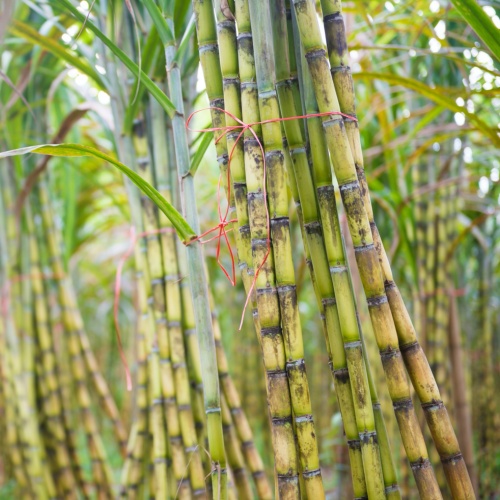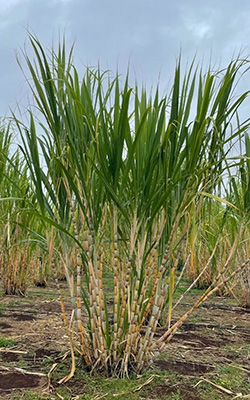Why Cane Sugar Processing Chemicals Are Essential for Modern Sugar Refining
The function of cane sugar processing chemicals in modern-day sugar refining can not be overemphasized, as they are integral to improving both the effectiveness of extraction and the overall top quality of the final item. Representatives such as phosphoric acid and details flocculants are utilized to eliminate contaminations, resulting in sugar that not only meets customer expectations however likewise adheres to market criteria.
Function of Processing Chemicals
The effectiveness of walking stick sugar handling hinges dramatically on the tactical application of processing chemicals. These chemicals play an essential function in enhancing the effectiveness and quality of sugar removal and refining. From the initial phases of juice extraction to the final purification actions, handling chemicals facilitate various critical procedures.
In the removal phase, chemicals such as phosphoric acid and calcium hydroxide are used to enhance the clarification process, aiding to eliminate impurities and put on hold solids from the walking stick juice. This not only boosts the yield but likewise ensures the quality of the final product. Furthermore, representatives like flocculants aid in the fast settling of contaminations, thus enhancing the overall process.
As the processing developments, chemicals are made use of in decolorization and crystallization stages. Turned on carbon and ion exchange materials offer to remove color and odor, making certain that the polished sugar fulfills customer quality criteria. Inevitably, the role of handling chemicals expands past operational efficiency; they substantially influence the sensory features of the end product, adding to market competition. Thus, the meticulous choice and application of these chemicals are vital for accomplishing optimum results in cane sugar processing.
Secret Types of Chemicals
Cane sugar handling depends on a range of crucial chemicals that promote each stage of manufacturing. These chemicals play vital functions in clearing up, lightening, and detoxifying the sugar extracted from cane.
One key classification of chemicals consists of flocculants, such as polyacrylamide, which help in the explanation procedure by advertising the gathering and settling of contaminations. Furthermore, calcium hydroxide is typically used to counteract level of acidity and aid in the elimination of non-sugar elements.
Lightening representatives, such as activated carbon and sulfur dioxide, are utilized to decolorize the syrup, causing a more clear end product. These chemicals aid get rid of shade substances that may affect the sugar's look and bankability.
In addition, phosphoric acid acts as a pH regulatory authority throughout the handling phases, guaranteeing optimal problems for the chemical tasks included in sugar removal and filtration.
Other essential representatives include edta (ethylenediaminetetraacetic acid), which chelates metal ions that could militarize undesirable responses, and salt hydroxide, which assists in pH control throughout the refining process. Collectively, these chemicals boost performance and make certain a premium walking stick sugar product.
Benefits for Sugar High Quality
Frequently neglected, the use of details processing chemicals significantly improves the total top quality of cane sugar. These chemicals play a pivotal function in refining processes, making certain that the last product satisfies stringent market criteria for purity and preference.

In addition, refining chemicals aid in achieving a consistent granulation and texture, which are vital for consumer acceptance. By controlling the crystallization process, these chemicals ensure that the sugar crystals form consistently, causing an extra enticing product that dissolves well in various applications.
Additionally, using these chemicals can enhance the life span of cane sugar by minimizing moisture absorption and microbial growth. Overall, the critical application of handling chemicals is crucial for providing top notch walking stick sugar that meets customer expectations and industry needs.
Ecological Effect Considerations

In addition, the energy-intensive nature of sugar refining, compounded by chemical usage, commonly causes increased carbon emissions. This adds to climate change and increases issues pertaining to the sustainability of existing refining practices. Furthermore, the sourcing of these chemicals may include methods that endanger biodiversity, such as monoculture farming, which minimizes the resilience of farming environments.

To minimize these effects, sugar refiners are increasingly exploring sustainable alternatives and embracing ideal methods that reduce chemical usage. Implementing strenuous environmental management systems can aid make certain that the refining procedure aligns with environmental requirements and promotes biodiversity. Ultimately, a well balanced strategy that focuses on both sugar quality and environmental stewardship is necessary for the long-lasting viability of the sugar sector.
Future Patterns in Refining
As the sugar industry grapples with the ecological difficulties connected with traditional refining approaches, ingenious techniques are emerging to boost both performance and sustainability. One substantial pattern is the adoption of environment-friendly chemistry concepts, which prioritize using non-toxic, biodegradable handling chemicals. This shift not just reduces ecological effect yet likewise addresses consumer demand for cleaner manufacturing techniques.
Another encouraging growth is the application of innovative filtration modern technologies, such my response as membrane layer splitting up and adsorption processes. These strategies boost the quality and high quality of the sugar while minimizing the quantity of wastewater produced throughout refining. Additionally, the assimilation of electronic innovations, consisting of IoT and AI, is changing operational effectiveness by enabling real-time surveillance and predictive maintenance, therefore decreasing resource waste.
Additionally, the use of spin-offs from sugar refining, such as bagasse and molasses, is obtaining traction. These materials can be transformed right into biofuels or value-added products, adding to a circular economic situation within the industry. Collectively, these fads indicate a change in the direction of even more sustainable practices that not only improve operational effectiveness however additionally line up with international sustainability objectives, ensuring the future feasibility of sugar refining.
Verdict
Walking cane sugar handling chemicals are vital in modern-day sugar refining, dramatically boosting the performance and quality of sugar extraction. The critical use these chemicals not just boosts the pureness and taste of the end product yet additionally makes certain regular formation and texture. As the industry increasingly prioritizes sustainability, the adoption of environmentally-friendly processing representatives is likely to shape future trends in refining, ultimately leading to higher top quality products and prolonged life span for consumers.

Ultimately, a well balanced approach that prioritizes both sugar top quality and ecological stewardship is necessary for the long-term practicality of the sugar market.
Walking cane sugar processing chemicals are crucial in contemporary sugar refining, dramatically enhancing the effectiveness and top quality of sugar removal.